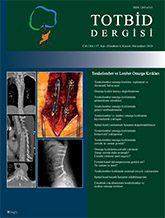
Spinal cord injury is a severe neurological disease which suddenly and seriously changes the life of the patient and family. Various neurological and medical problems are seen after injury; nearly all the body functions are affected. In the rehabilitation of the patient with spinal cord injury, the medical status is tried to be stabilized while struggling with the present or possible complications. The patient and his family are informed and tried to be adapted to their daily life as best as possible. According to the level and severity, complications frequently encountered after spinal cord injury are: autonomic dysfunctions, pulmonary problems, neurogenic bladder and bowel, sexual dysfunction, pressure ulcer, deep vein thrombosis, pulmonary emboli, musculoskeletal problems like heterotopic ossification, osteoporosis, and overuse injuries. Early rehabilitation is very important in preventing these complications. Rehabilitation is a long process which starts in the hospital with the collaboration of a huge interdisciplinary team. Rehabilitated patients who leave the hospital after the treatment reaching a certain expected level should be followed up at regular intervals.